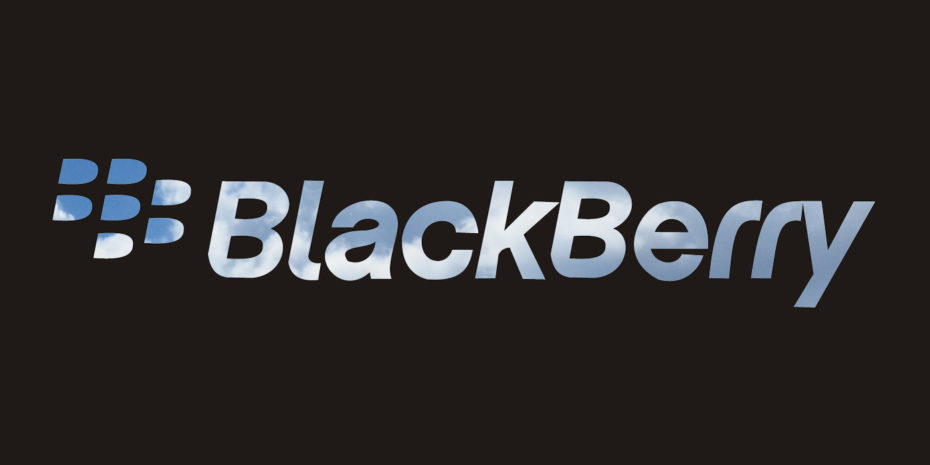Mobile World Congress 2017 concluded on Thursday, but as usual all the devices had been announced on the opening weekend, starting with TCL’s BlackBerry KeyOne. Buried in the news of the fourth BlackBerry device running Android was a big change for the company: BlackBerry no longer makes devices; BlackBerry now only makes software. We had the opportunity to speak with Alex Thurber, head of BlackBerry’s mobility solutions unit, about the Canadian company’s transformation.
Over the past year, BlackBerry’s business has increasingly relied on licensing — the division Thurber leads was once called the devices business unit. Now it’s the mobility solutions unit. That’s right — no more devices. Instead, the unit is responsible for supporting handsets and all other hardware. BlackBerry has largely completed its move to a licensing-only model.
“We’re excited how as mobility solutions we fit into the broader BlackBerry story, which is obviously focused on big picture enterprise mobility,” Thurber told VentureBeat. “And again, with our licensing ventures I think we’re in a great position to move forward. You’re going to see a lot more BlackBerries going forward than you have in a long time. Soon our other licensees will start releasing products as well. I think it’s going to be a very exciting year for BlackBerry as we really look at re-expanding our move with smartphones.”
|
So the KeyOne is just the first of many BlackBerry-branded devices coming out this year. Instead of devices, the company sees itself offering security and privacy features, specifically making it easier for companies, governments, and individuals to protect whatever information they deem valuable. How will BlackBerry do this without making any actual devices? By focusing on software.
|
License out everything, but control the software
BlackBerry has handed all the hardware and sales details to its licensees. The KeyOne is the first BlackBerry phone that BlackBerry isn’t pushing itself. The past three devices, the BlackBerry Priv, the DTEK50, and the DTEK60, all went through the BlackBerry distribution chain.
Now, licensees are responsible for selling the BlackBerry-branded phones through their own distribution chains. There’s no difference to the end customer, whether it’s a business or an individual user, as the devices are still available in retail stores, from carriers, and on the open market. But for carriers and distributors, they’ll now work with the licensees, as opposed to with BlackBerry.
BlackBerry is no longer making any hardware or manufacturing any devices. The company is still selling some phones, but only those that were already built. You can no longer buy a new BlackBerry from BlackBerry.
This transition has been ongoing for the last month or so. The BlackBerry distribution chain is finito.
When asked about the demand breakdown for BlackBerry devices (enterprises versus individuals), Thurber deftly explained that it really depends on the market. For BlackBerry, Indonesia is very much a consumer market; India is small business, enterprise, and government; Western Europe is more business than government-focused; and South Africa is a lot of consumers. Although the KeyOne is launching globally, licensees will also be building BlackBerry phones catered to specific regions (announced licensees so far include TCL, BB Merah Putih in Indonesia, and Optiemus in Sri Lanka, Nepal, and Bangladesh).
“They are on the ground, they know exactly what their consumers require, be it individuals, be it companies,” Thurber explained. “They are developing the hardware to fit that market at their particular price point and then we’re coming in with that software expertise, the BlackBerry brand, and all awareness and positive vibes behind that. I think it’s a real winning combination.”
The licensee is responsible for coming up with the marketing and branding plan, including the name. Although BlackBerry doesn’t design the phone, the company can approve or deny the final design and name.
At the end of the day, BlackBerry has “complete control of the software.” Well, Google still makes Android, but BlackBerry offers its software and apps on top, including monthly security patches.
BlackBerry delivers a “signed and sealed software image” for every device with its name on it. The company will also work with the licensee for particular applications that a given market requires.
“There won’t be anything put on the device that we haven’t approved,” a Blackberry spokesperson confirmed with VentureBeat. “Anything else has to be stock downloaded and installed from the Google Play store.”
Never say never
Given this new strategy, which has been in the making for over a year, one would think that BlackBerry is entirely focused on software for Android devices and that it will never make hardware again. That would make sense, but the company isn’t quite ready to commit.
When asked where BlackBerry OS fits into all of this, Thurber replied with the same thing BlackBerry has been saying ever since rumors of an Android BlackBerry first arrived: BlackBerry is still supporting BlackBerry OS with regular updates.
That’s right: BlackBerry still employs engineers focused on BlackBerry 10 — the latest 10.3.3 update came out in December 2016. Thurber wouldn’t definitively say there will be no more BlackBerry OS devices, nor would he commit to a future BlackBerry 10 phone. In other words, it’s technically still possible, assuming there’s enough demand from customers.
If a non-Android BlackBerry is released sometime in the near future, however, it will probably be made by a licensee. So, will we never see a BlackBerry-sold phone again?
“I’m always cautious in the technology world to never say ‘never’,” said Thurber. “In the foreseeable future, our model is very much focused on the software licensing and working with partners on the hardware development, and then the branding, selling, etc.”
BlackBerry is dead, long live BlackBerry!
by EMIL PROTALINSKI

